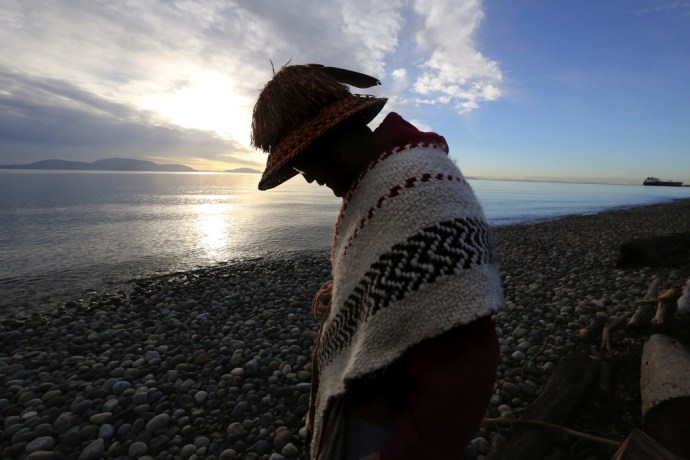Crude Awakening
March 15, 2016
by Jay Taber
Now that the U.S. crude oil export ban has been lifted, and ‘bomb trains’ are already rolling into the four Pacific Northwest refineries, the three-year-old conflict between Indian tribes and fossil fuel exporters opens up vast opportunities for Anti-Indian Movement organizing, with some really deep pockets behind it. By comparison, White Power on the Salish Sea — promoted by coal exporters — could seem like a mere warm-up for organizations like Citizens Equal Rights Alliance (CERA), “the Ku Klux Klan of Indian country”.
Press statements by leaders from the Affiliated Tribes of Northwest Indians, the National Congress of American Indians and Coast Salish Nation indicate they will intervene to guard against these orchestrated attacks on tribal sovereignty and treaty rights, but the federal courts are decidedly unfavorable after all the Reagan/Bush judicial appointments. Since the tribes will likely continue pursuing administrative remedies through federal departments like Interior, much will depend on the next US administration. In that regard, things will probably get worse.
The tribes can now invoke international law under the 2007 UN Declaration on the Rights of Indigenous Peoples, seeking relief from the Organization of American States, but under US law they first have to exhaust domestic administrative remedies. And that takes years, during which time CERA and the Tea Party will undoubtedly continue inflaming the dispute, while fossil fuel exporters continue capitalizing on fear.
Since journalists covering this impending pandemonium will rely on corporate press releases and government pronouncements, it falls on the shoulders of think tanks like the Center for World Indigenous Studies, the Institute for Research and Education on Human Rights, and Public Good Project to contextualize things in the midst of fossil-fueled chaos. To avoid bloodshed, we will need to provide easily searchable background materials in advance of the imminent mayhem.
Meanwhile, mainstream media studiously avoids exposing the corporate-backed, organized racism by organized labor, intended to incite resentment and provoke Wise Use terrorism toward American Indian tribes.
[Jay Thomas Taber is an associate scholar of the Center for World Indigenous Studies, a correspondent to Forum for Global Exchange, and a contributing editor of Fourth World Journal. Since 1994, he has served as communications director at Public Good Project, a volunteer network of researchers, analysts and journalists engaged in defending democracy. As a consultant, he has assisted indigenous peoples in the European Court of Human Rights and at the United Nations. Email: tbarj [at] yahoo.com Website:www.jaytaber.com]

